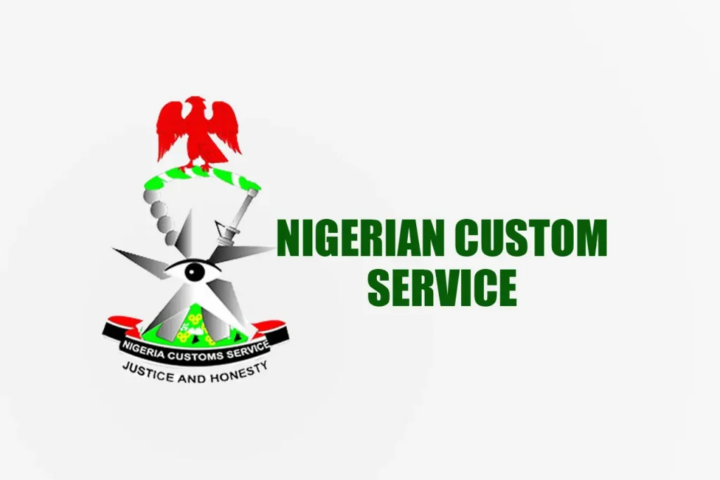The Nigeria Customs Service (NCS) has announced a new initiative aimed at streamlining import charges, in what officials describe as a crucial step toward improving efficiency, reducing business costs, and enhancing transparency in the country’s import and export system. The move comes in response to sustained concerns from key stakeholders in the private sector, including manufacturers, importers, and freight forwarders, many of whom have complained about the complexity, duplication, and cost burden of the current tariff structure.
At the core of the new reform effort is a plan to simplify Nigeria’s customs charges into a more manageable and legally consistent framework. Presently, the import process in Nigeria involves a variety of charges—some statutory, others administrative, and a few reportedly collected without clear legal backing. These include the Comprehensive Import Supervision Scheme (CISS) levy, a 7% cost of collection fee, and a range of other port-related surcharges that have raised concerns about their cumulative impact on the final landing cost of goods.

A senior customs official, who spoke under anonymity, confirmed that the service is undertaking a holistic review of the charge structure in collaboration with the Ministry of Finance and other regulatory bodies. The aim is to replace outdated, redundant, or overlapping levies with a more transparent, unified model that aligns with the provisions of the Nigeria Customs Service Act of 2023. In doing so, the agency also seeks to foster an environment where businesses can operate with greater predictability and lower compliance risk.
The push for reform was further intensified following a recent resolution from the National Assembly, which described some of the existing charges as unauthorized and lacking legislative support. Lawmakers had instructed the Customs Service to halt such practices by a specified deadline, emphasizing that public agencies must operate strictly within the confines of the law.
Manufacturers and trade experts have long argued that the current import regime is one of the most burdensome in sub-Saharan Africa. With Nigeria heavily dependent on imported raw materials and finished goods, these levies contribute significantly to high production costs and consumer prices. Many believe that simplifying customs procedures and reducing the cost of imports could ease inflationary pressures and encourage industrial growth.
The new customs approach will reportedly be anchored on the concept of Free-On-Board (FOB) valuation, with a proposal to introduce a standardized import charge based on 4% of the FOB cost of goods. This would replace several fragmented charges and provide a clearer, more predictable cost framework for importers. However, implementation of this model was recently suspended following strong opposition from business groups who argued that the timing was inappropriate given ongoing economic challenges such as currency volatility, high inflation, and weak purchasing power.
Customs authorities have responded to these concerns by initiating a national stakeholder engagement drive. Meetings with representatives from the Manufacturers Association of Nigeria (MAN), freight forwarders, chambers of commerce, and other interest groups are ongoing. The goal, officials say, is to develop a mutually acceptable charging structure that supports national revenue goals without placing undue stress on businesses.
Beyond streamlining fees, the Nigeria Customs Service is also investing in modernizing its operational systems. A major component of the reform is the rollout of a centralized electronic customs platform that integrates risk assessment, payment, and clearance processes. This digital system is expected to reduce corruption, improve clearance timelines, and ensure accurate calculation of duties.
Training and capacity building for customs officers have also been intensified, with a focus on professionalism, compliance with international trade standards, and adherence to legal procedures. According to the Comptroller General of Customs, these steps are necessary to reposition the agency as a world-class revenue collection and border management institution.
Many economic analysts have welcomed the reform effort, noting that a more efficient and less costly import regime is essential to attracting foreign direct investment, boosting competitiveness, and promoting trade-led growth. They caution, however, that transparency, enforcement discipline, and sustained political will are key to ensuring the success of the initiative.
The streamlining of customs charges is being seen as part of a broader economic reset by the federal government, which has recently introduced a series of fiscal and monetary reforms to stabilize the economy. From fuel subsidy removal to exchange rate liberalization, authorities say these difficult but necessary adjustments are geared toward long-term economic sustainability.
As Nigeria looks to reposition itself as a regional trade hub, a simplified and credible import duty regime will be critical. While skepticism remains in some quarters, many stakeholders are cautiously optimistic that the Customs Service, under renewed leadership, will follow through on its promise to transform the nation’s import framework for the better.
Support InfoStride News' Credible Journalism: Only credible journalism can guarantee a fair, accountable and transparent society, including democracy and government. It involves a lot of efforts and money. We need your support. Click here to Donate
